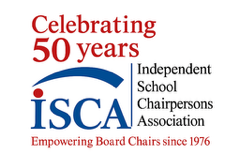February 2019
Member query:
What are the top three topics that must be discussed as part of a new board member orientation process? Are there best practices around how and when to incorporate governance training into the board’s yearly schedule of meetings? What is the minimum number of hours that should be spent discussing governance?
Reply from Cathy Trower:
Assuming that you have explained to new board members the expectations for board service, and the normative practices of the board during the recruitment process (as no one should be brought on not knowing these things), the top three things (if I can only choose three) to include in new board member orientation are these:
- Seminal events in the history of the school as well as the big issues, challenges and opportunities ahead.
- A walk-through the board portal – how to use it what’s there (including the bylaws, committee structure, strategic plan, most recent accreditation self-study, resources available to board members from NAIS and the regional accrediting organization, etc.).
- An overview of each senior team leader’s portfolio delivered by each team member with special attention to the academic (including accreditation, faculty highlights, how the school thinks about and measures the quality of the student experience) and financial side of things (including the business model, how tuition is set, tuition discounting, and the like).
I don’t think that there’s a magic formula for board “training” or number of hours to spend discussing governance so cannot say what is “best” practice here. Good practice suggests that the board measure its performance periodically and to contemplate and act on results. This process starts with a discussion of what makes the most sense to measure – how does the school and how do board members think about high performance that can actually be measured. There are all sorts of surveys out there, but I don’t think it’s wise to simply copy one of those and administer it because the very act of discussing what constitutes high performance that could be measured is very educational for board members.
In terms of educating the board on important issues and trends facing the school, it’s instructive to have the Head of School (working with her/his team) determine a set of, say, 5-6 items and allow board members to – anonymously (so no one is embarrassed) rate their knowledge of those items. This will readily show management where gaps are that need to be closed and education sessions can be scheduled for a portion of meetings or between meetings (via videoconference or webinar).
